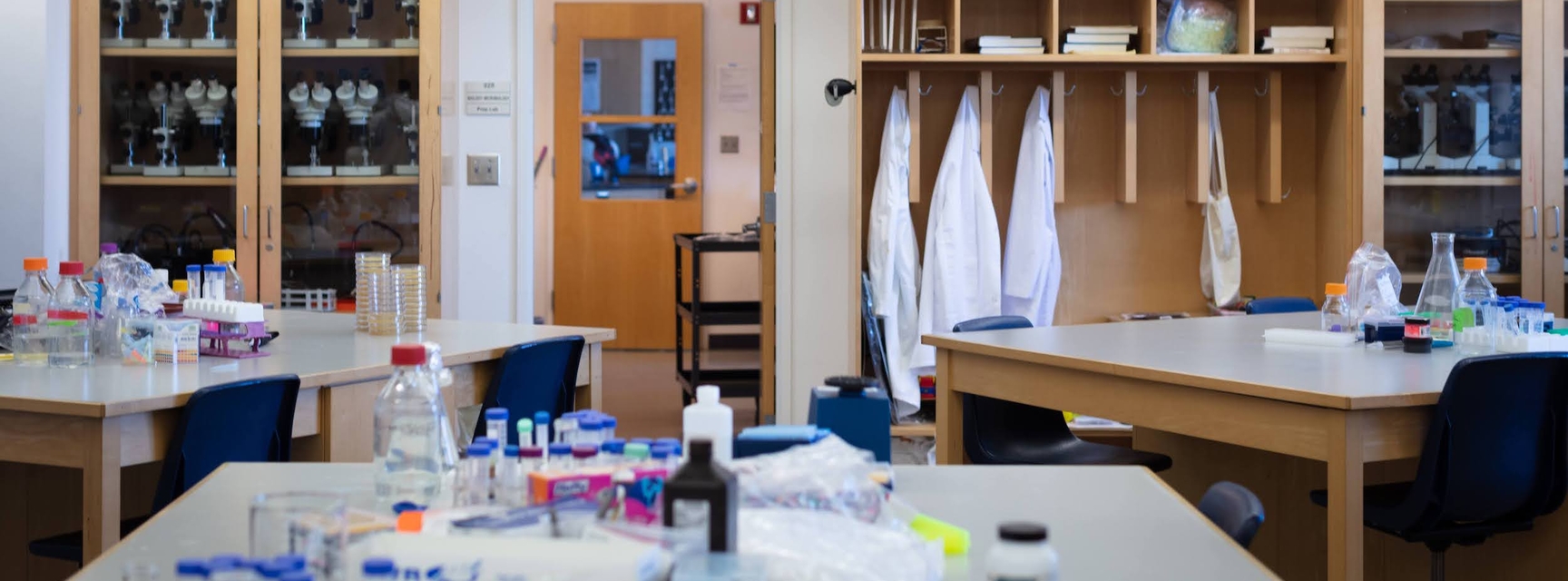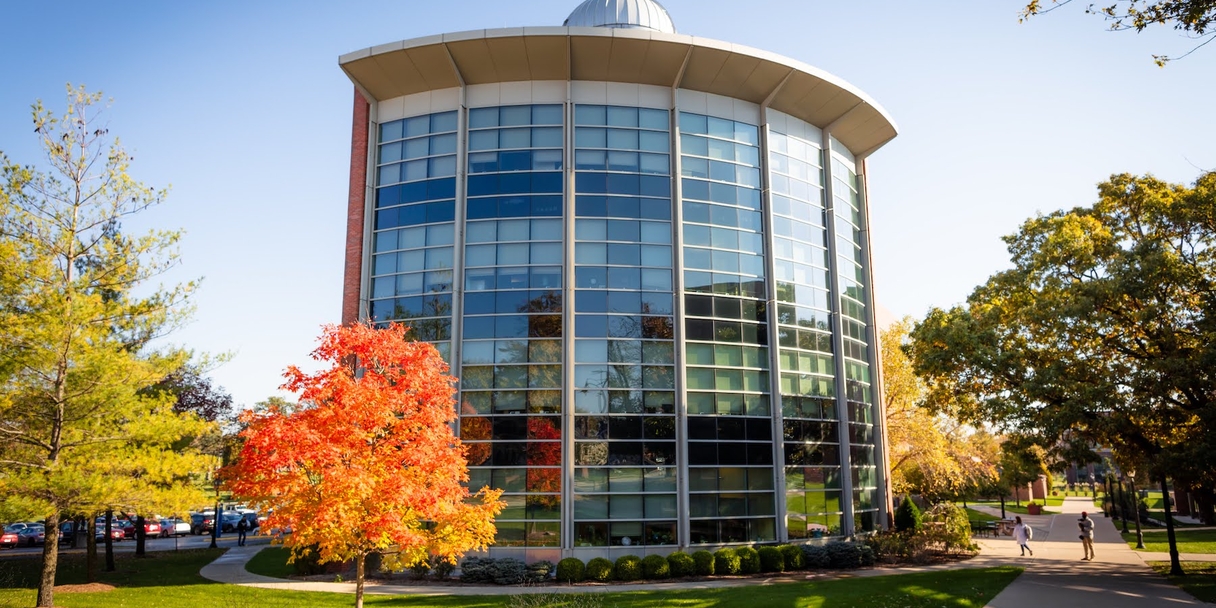Top Notch Science Facilities
Most of the natural science programs, including biology, chemistry and physics, are located in the Leighty-Tabor Science Center, which opened in 2002. This modern building features a observatory where all students can examine the stars through Millikin's 20-inch telescope, the largest public telescope in Illinois. A greenhouse on the east end of the rooftop is used for experiments by both students and faculty. Nursing students will also become very familiar with Leighty-Tabor since the School of Nursing is located on the first floor. Take a virtual tour today!

